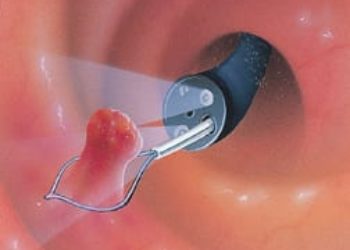Less frequent echocardiography for cancer survivors may be more cost effective
Image: PD
1. This model of simulated health outcomes found that screening for cardiac disease by echocardiography or MRI among childhood cancer survivors may be effective at reducing risk, but the frequency of screening could be reduced from current guidelines in order to increase cost effectiveness.
Study Rundown: Childhood cancer survivors are at increased risk of cardiac disease, including congestive heart failure (CHF). There is particular concern for patients who had received cardiotoxic therapy such as anthracyclins or chest radiation. Current recommendations suggest echocardiography screening every 1-2 years for high risk patient and 2-5 years for low risk patients. To test whether this approach is appropriately cost-effective, the authors modeled changes to health outcomes for different rates of cardiac screening. From their model, 18.8% of all survivors would develop congestive heart failure (CHF) after 15 years without any cardiac assessment, which is only marginally decreased to 17.2% with annual screening. When the cost-effectiveness of screening was calculated, no cardiac assessment was preferred at a $100,000 quality adjusted life-years (QALY) threshold, with the next best being an assessment every 5 years. For those who had a high total dose of anthracycline, the most cost-effective screening was every 2 years. The most significant limitation of this study was the use of adult CHF data as a disease model, as it is unclear whether childhood CHF risk can be as effectively decreased by medical treatment. However, this model demonstrates that current recommendations for routine screening of cardiac function in childhood cancer survivors are likely less cost-effective that less frequent alternatives.
Click to read the study, published today in the Annals of Internal Medicine
Click to read an accompanying editorial in the Annals of Internal Medicine
Relevant Reading: Cardiac outcomes in a cohort of adult survivors of childhood and adolescent cancer: retrospective analysis of the Childhood Cancer Survivor Study cohort
In-Depth [modeling study]: A state-transition model for CHF was developed for 5-year childhood cancer survivors diagnosed at age 10, who then aged 15 years. This cohort was then exposed to simulated risk of asymptomatic left ventricular dysfunction, detectable by screening, which progressed to CHF. For increasingly frequent screening, there were only small decreases in the lifetime risk for CHF; for an assessment every 10, 5, 2, and 1 year(s), the decreases in relatively risk were only 2.3, 3.9, 6.6, and 8.7% respectively. Additionally, in those who had high anthracycline doses, the lifetime CHF risk was increased to 31.8%. Although the risk reduction by screening was comparable between both low and high anthracycline groups, the higher risk improved the cost-effectiveness of screening more frequently, with a probability strategy of 0.57 for a 2-year screening plan. For patients with a total anthracycline dose less than 250mg/m2, no assessment by 2D echo and a once/10 years screening by MRI was recommended. In those with a dose greater than 250mg/m2, screening by 2D echo is recommended every 2 years and by cMRI every 5 years. Interestingly, the model also suggested that universal treatment of these high-risk patients with ACE inhibitors and beta-blockers would reduce lifetime risk of CHF and be more cost-effective than screening. One weakness of this model is that it did not include refractory heart failure, which has a worse prognosis and cost, which could contribute toward underestimating the cost-effectiveness of screening.
More from this author: Lifestyle interventions can reduce type 2 diabetes among high-risk patientsHome scoring system may prevent unnecessary pharyngitis clinic visitsNo evidence for the cognitive side-effects of statinsHousehold firearm accessibility increases risk of suicide and homicideTranscatheter aortic valve replacement provides only minor benefit to quality of life
©2012-2014 2minutemedicine.com. All rights reserved. No works may be reproduced without expressed written consent from 2minutemedicine.com. Disclaimer: We present factual information directly from peer reviewed medical journals. No post should be construed as medical advice and is not intended as such by the authors, editors, staff or by 2minutemedicine.com. PLEASE SEE A HEALTHCARE PROVIDER IN YOUR AREA IF YOU SEEK MEDICAL ADVICE OF ANY SORT.






